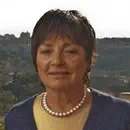
A beautiful and true story is told about the meeting of two great Talmudic minds several decades ago. When Israeli Chief Rabbi Hagaon HaRav Avraham Shapira, then Rabbinic leader of Religious Zionism, visited America, he gave a shiur at Yeshiva University (YU) attended by that institution's famed Rosh Yeshiva, HaGaon HaRav Joseph B. Soloveitchik, known reverently as the "Rov". At the end of his lecture, Rabbi Shapira approached Rabbi Soloveitchik and kissed him. When some of those present remarked that one is not allowed to kiss even one's own children in a synagogue, Rabbi Shapira responded: "But one is allowed to kiss a Sefer Torah."
That story came to mind as I noted that Rabbi Dr Aaron Adler's new book,'Seventy Conversations in Transit with HaGaon HaRav Joseph B. Soloveitchik zt"l," (OUPress, Urim Publications, 179 pp.) chronicling the period in which he served as the Rovi's driver, is aptly titled in Hebrew, Vayehi Binsoa Haaron (When the Holy Ark travelled, a quote from the Book of Numbers on the Tabernacle's sojourn in the desert). After all, if Rabbi Soloveitchik is likened to a Sefer Torah, the car in which he travelled is akin to the Holy Ark, and it is Rabbi Aaron who merited taking it on its journeys.
In fact, Rabbi Dr. Aaron Adler was privileged, from 1974-1977, to be Rabbi Soloveitchik's personal driver to the airport to catch the Rov's weekly flight to New York, where he was a a brilliant and awe-inspiring Torah lecturer, from his home in Boston where he was a more accessible community rabbi. Rabbi Adler, who admits that he purposely drove in the slow lane to add precious minutes to the ride, gained priceless insights into the Rov's thoughts on varied halakhic issues, glimpses into his hashkafa (Torah worldview) and most fascinatingly, an inside look at the everyday behavior of an intellectual giant who saw himself, first and foremost, as a servant of Hashem.
The Talmud says that attending to the needs of one's teacher has more value than learning from him, because although a great Talmudic sage adds immeasurably to the understanding of Torah, his actions are a mirror of how the Torah is supposed to affect every aspect of one's life. Rabbi Adler realized that he was in a unique situation and luckily for us, took the time to jot down brief highlights of each conversation, and – perhaps thanks to the lockdowns due to the corona pandemic which he alludes to in his remarks -- has now expanded and generously shared them with us.
Reading the seventy vignettes of 1-4 pages each that comprise the book (which I found hard to put down until I finished it and then wished there were more) will be a fascinating and nostalgic experience for the Rov's students. The opinions of several of his well-known students, printed on the back cover, Rabbi Herschel Shachter, Rabbi Prof. Carmi Horowitz and Rabbi Menachem Genack, show that the three, close talmidim (students) of the Rov, thoroughly enjoyed it. For those of us, like this writer, who occasionally heard the Rov speak, but were not his students, it is the closest we can get to learning about the Rov's attitudes and views, without an intermediary's opinion intertwined in the writing. Rabbi Adler did add his own comments to some of the conversations, but, with laudable integrity – and humility - took care to print them in a different font with a black line delineating them. He also divides the conversations into five subsections, so that the conversations in each section, although on different topics, are part of a coherent whole.
We learn about the Rov's scrupulous honesty as he refunds a nickel, insists on paying the tolls and parking and how he cares about people's feelings in the way he answers questions. Strictness and leniency within the halakhic framework take social and human factors into account when granting a halakhic decision as well as when dealing with the non-observant, while he evinces an informed, analytic and matter of fact approach in decisions on issues such as prenatal testing, glatt kosher meat and saying the Hagomel blessing after air travel. His educational principles and decisions are pioneering, ideological and at the same time, pragmatic, as are his views on women's Torah study. I found the visit to his father's grave, an exception to family tradition, extremely moving and must admit having tears in my eyes when Rabbi Adler wrote of the Rov's saying tehillim at Rabbi Belkin's bedside before he passed away. And there is much, much more.
Rabbi Adler brings what he admits is probably an apocryphal story about Yitzchak Rabin offering the Education portfolio to Mizrachi in exchange for dropping the controversial "Who is a Jew" issue and the Rov opting for Education as having more influence. Rabbi Adler, in his comment section, disputes the efficacy of religious education ministers in that regard in retrospect, saying that this was "overly optimistic", but having worked in education since my aliyah 50 years ago, I would like to add my own comment! The NRP Education Ministers, although they certainly tried, could not have much of an effect on an antagonistic secular parent body which, for example, decided at one point that talking about teshuva before Rosh Hashanah was an attempt to turn their children into baalei teshuva and banned rabbis (including Chabad) from the non-religious schools! However, the Yeshiva high school and Ulpana networks, National Service and countless other educational projects for the religious community, would not have happened without a Religious Zionist Education minister. And those students have had much influence volunteering in the secular community.
Different opinions exist as to the Rov's attitude to the State of Israel, Rabbi Avraham HaCohen Kook's views on the rebirth of Jewish life in Eretz Yisrael, the Chief Rabbinate and aliyah. The Rov's seminal work Kol Dodi Dofek (part of Israel's Religious Education curriculum) and his role in the Mizrachi put him squarely in the Religious Zionist camp, with perhaps a nuanced definition of Zionism. Rabbi Adler brings memorable examples of the Rov's identification with the State, but also makes clear that he felt strongly that American Jewry needed rabbinic leadership as well.
It is well known that Rav Tzvi Yehuda Kook, Rosh Yeshiva of Merkaz HaRav and the son of Rav Avraham HaCohen Kook, made considerable efforts to travel to wherever the Rov was giving shiurim when he spent time in Israel while running (unsuccessfully) for the Tel Aviv Chief Rabbinate. (Running on the Agudah list gave him little chance of being elected in a city that was then overwhelmingly Mizrachi, whose candidate was the much-respected and older Rav Amiel). Party affiliations notwithstanding, Rav Tzvi Yehuda explained that Rav Soloveitchik had visited his father in 1935, the last year of his life, and that Rabbi Kook told his son to attend the Rov's shiurim whenever possible because "the genius of Rav Chaim of Brisk has passed down to his grandson."
There is no one definitive answer as to why, years later, the Rov did not accept the offer to serve as Chief Rabbi, and perhaps that is because several factors came into play – wanting to avoid another election experience may understandably even be one of the unspoken ones - but the book does explain that the Rov was not comfortable with the idea of a rabbinate under government aegis and said that it was not for him. That attitude is different from that of Chief Rabbis such as Rabbi Ovadia Yosef, Rav Avraham Shapira, Rav Mordechai Eliyahu and others, who were well aware of that built in difficulty but were fearless in standing up for Torah truth against political or governmental pressures and who saw that as an integral and crucial part of their role in a changing and developing miraculous Jewish state which faces religious questions of national significance.
Had Rabbi Soloveitchik been Chief Rabbi, there is no question that he would have done the same and Rabbi Adler's relating how the Rov felt that the Israeli Chief Rabbinate is the "mara deasra" – the national halakhic authority – on questions such as the Jewish status of Ethiopian immigrants or Hallel on Independence Day is in line with Rav Kook's definition of the Chief Rabbinate's role. The book tells of his pride in a grandson's IDF service, of his calling the IDF uniform "bigdei kodesh" – holy garments – when asked about whether a soldier needs to put on freshly laundered clothes to daven - but that was possible because of a chief rabbinate system, as it was at Chief IDF Rabbi Goren's insistence early on that the IDF kitchens are kosher.
Rabbi Adler should be highly commended for this uplifting, interesting and enlightening book, and I have no doubt readers will be profoundly grateful for the glimpse it gives into the life of a true Gadol who was, in every way, larger than life.
Rabbi Dr. Aaron Adler was a student of the Rov, attained his B.A. and M.A. as well as semicha from Yeshiva University, and his Ph.D. from Bar Ilan University where he served on the faculty after making aliyah in 1979. He was president and campus rabbi at the Emunah College of Technology and Arts in Jerusalem, founding head of Yeshivat Ner Tamid in Hashmonaim, and pulpit rabbi in Ramot, in Zurich and currently at the Ohel Nechama Synagogue in Katamon. He is a popular lecturer and scholar in residence as well as a leader of Jewish Heritage tours.
Rochel Sylvetsky is Senior Consultant and Op-ed and Judaism editor at Arutz Sheva and formerly its Managing Editor.
